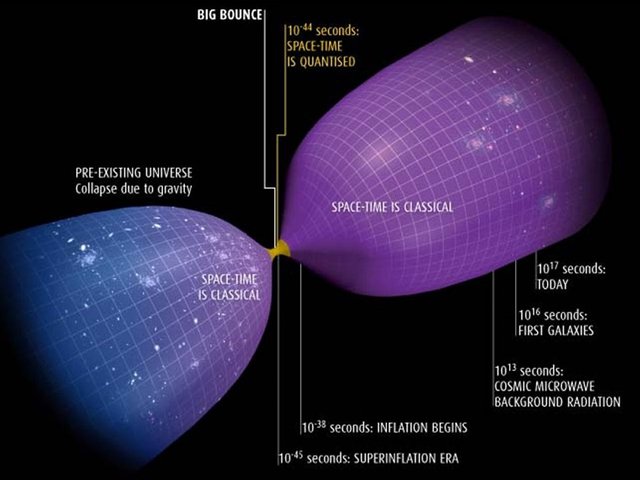What if there wasn't a Big Bang?

A Brazilian scientist rejects the basic principles of the Big Bang theory by calling it "speculation" and offers an alternative explanation for the origin of the universe.
Juliano Neves is part of a group of researchers who dare to challenge the most famous and most established explanation for the birth and evolution of the universe. In a study Nevis is delivering one of the main aspects of the standard cosmological model - the need for spatial-time singularity, known as the Big Bang.
Giuliano Nevis, believes that the universe is experiencing ever-changing expansion and contraction. He also argues that while "there are many observations in cosmology that support the hypothesis that the universe is undergoing a period of rapid expansion, there is no direct evidence that this expansion has begun with singularity."
According to the dominant hypothesis of the Big Bang 13.7 billion years ago, our universe emerged from singularity - a point of infinite density and mass - and before that event space and time did not exist. If that was true, then the Big Bang must have happened before it had time and space.
Nevis's proposed theory eliminates the need for singularity - rather, it links to the concept of "Bouncing Cosmology". This hypothesis supports the fact that the universe is still expanding, but it does not imply that the universe has started from an infinitely small point. Instead, it claims that the universe is constantly expanding and shrinking. These phases follow each other smoothly like tides.
There are ways to measure rapid expansion data, such as how the universe is expanding in all directions today, and that observed distant objects are moving at a faster pace.
Another proof confirming the initial expansion is the spread of heat from the rapid expansion called the Cosmic Microwave Background (CMB). Heat is found everywhere and spreads in all directions, but at first glance without an unified point of a source.
The cosmic microwave background was formed 380,000 years after the first expansion when the atoms began to form and the universe became transparent in time.
But no observation and measurement indicates the existence of a singularity that could support Nevis's claim that the Big Bang may never have happened.
Nevis said his "cosmological model was built on the basis of studies of black holes," and as a result eliminates the need for some singularity. Ordinary black holes are those that are believed to exist without singularity in the middle. The mass in the center of the regular black hole is not an infinite constant, but depends on the distance to its center.